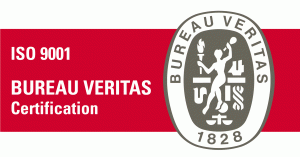Author: Ratih Dewanti-Hariyadi, Juli Hadiyanto and Eko Hari Purnomo
ABSTRACT
Currently, 40.87% of foodborne disease outbreaks in Indonesia are associated with homemade food. Staphylococcus aureus are probably important pathogens contributing to the food poisoning cases because they are natural microbiota that live in human body and could contaminate food due to poor sanitation and hygienic practices. Since most of Indonesian food is heavily heated, it is interesting to know whether S. aureus isolated from local food is more resistant to heat and whether common processing could actually inactivate a large number of these pathogens. The objective of this research is to evaluate the heat resistance of several isolates of S. aureus obtained from ready to eat (RTE) Indonesian traditional food. The study was conducted by inoculating 1 ml of late log phase S. aureus culture into 9 ml of heating menstruum (Trypticase Soy Broth) at 53, 54, 55, and 56oC for 5, 7, 10 and 15 minutes. S. aureus surviving from the heating process was enumerated on Baird Parker Agar (BPA) media containing egg yolk tellurite after incubation for 48 hours at 35oC. Thermotolerance parameters, i.e. D and Z values, were estimated using standard regression analysis based on log linier models. The result was used to estimate the adequacy of various cooking methods for several RTE Indonesian traditional food items. The D53, D54, D55, and D56 values of local isolates of S. aureus were 19.47-64.59 min, 13.42-23.8 min, 6.59-14.3 min and 5.17-8.78 min, respectively. The thermal inactivation of S. aureus followed first order kinetics with r2 values of 0.92-0.99. The Z values calculated in this study ranged from 3.37 to 6.06°C. These values were within the range of reported Z values for most non-spore forming bacteria (4-6oC). This study provided data on the thermal resistance of S. aureus isolated from Indonesia and validated that heating commonly applied in cooking of RTE traditional food could reduce Staphylococcus aureus to up to 6.9×106 log cycle. However, common practices following heating of certain food items may allow recontamination, thus handling of RTE food after cooking is very important for the management of this pathogen.



